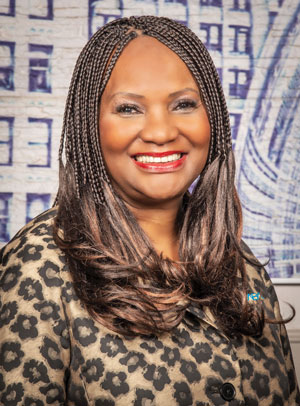Agree to Disagree: Civics, civility and collaboration can guide us to a better society

Photo of Deborah Enix-Ross by Harvey Tillis
In the 18th century, John Wesley, the English founder of Methodism, had a feud over doctrine with his colleague George Whitefield that split their followers. But despite their differences, the two remained friends and concentrated on their common goals.
Before Whitefield passed away in 1770, he had asked that Wesley deliver the memorial sermon. In it, Wesley summed up their relationship, writing, “There are many doctrines of a less essential nature … In these, we may think and let think; we may agree to disagree.”
“Agree to disagree” is what lawyers do around negotiation tables every day. We do it in mediation, in arbitration and in courtrooms after a judge has heard both sides and issued a ruling. “Agree to disagree” is what we should do in the big tent that encompasses the diversity of membership in the American Bar Association.
Today, our country is divided over many issues. This division manifests itself in the workplace, on school boards, in courtrooms and in threats against law enforcement and our judges. It is worth noting, however, that different opinions and ideas have always existed. When these ideas are freely and respectfully debated and listened to, the process can make our country stronger.
Instead, the level of animosity and division has reached a point where neighbor is attacking neighbor and even family members are turning on each other. We have seen attacks on the justice system, the norms of our democracy and the rule of law.
Our differences are aggravated by incivility in public discourse and a general lack of understanding of civics.
But lawyers can help. We are uniquely positioned to lead the way in promoting civics, civility and collaboration—the cornerstones of our democracy—to restore confidence in our democratic institutions and to protect the rule of law. Lawyers appreciate that although our differences may be stark, we know how to work together to resolve them. We know how to agree to disagree. The ABA House of Delegates demonstrates this process of expressing our viewpoints but also listening to those of others.
Model behavior
Lawyers can model the behavior we wish to see, and the ABA has the resources and ability to embrace this role. And we will make it a focus of this coming year.
We will have leadership from our new Commission on the Cornerstones of Democracy. We have built collaborative networks of state and local bars and civic organizations, and we have the policies to advocate for a more just society. We have developed a conversation guide for state and local bar associations—and civic, professional and government organizations—to use in programs that will model civil discourse on hotly contested issues.
We will feature civics and civility programming at events throughout the 2022-2023 bar year. Also, we will collaborate with other legal organizations on programming and activities.
In August, we kicked off our events with a program at the University of Miami, my alma mater, titled “Journalism and Civility as Cornerstones of Democracy,” where the importance of civility in journalism was discussed.
We will concentrate our Cornerstones program not just on lawyers, but across all professions because this has become a societal problem.
Civics and civility also will be the focus of the national programming and resources for Law Day in May, and questions will be added to our annual ABA Survey of Civic Literacy.
Americans can listen to each other and accommodate differing views. Collaboration and civility will be critical as the ABA and lawyers everywhere begin to understand the profound changes in law and society that we are now witnessing.
Through careful consideration of all sides, lawyers can turn down the heat and increase the light we need to bridge our differences. More than ever, this will require us to model generosity in our thoughts and behaviors as we respect views beyond those that give us immediate comfort and self- assurance.
As we tackle our serious modern problems and search for solutions, perhaps we can take heed of advice from 250 years ago and “agree to disagree.”
Follow President Enix-Ross on Twitter @ABAPresident or email [email protected].



